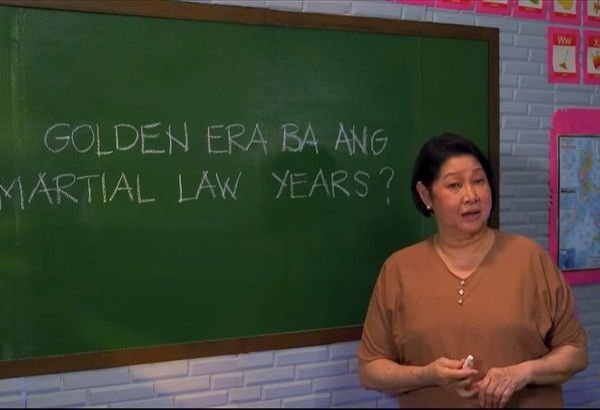Philippine Elections: How to Come from Behind and Win
/In our previous article, we identified the 4Cs needed to win an election: Candidate-Communication-Campaign to get the votes and Cash. Elections are primarily a game of resources, and the traditional approach is to raise funds and funnel the money to finance the operations and expenses. This is why candidates endeavor to build their war chests early. But donations are not handed in bulk. And surveys serve as the electoral ATMs to attract donors to continue giving and keep the cash flow strong.
It is no secret that the leading presidential candidate in the Philippines had started campaigning in social media even before the 2016 elections. With 100 days to go before E-day, how do you catch up with a front-runner who enjoys unlimited resources and the likely support of the administration machinery?
The Answer: Volunteerism
Borrowing from the 2008 and 2012 Obama campaign playbook, the challenge is to recruit and develop an army of volunteers and form a decentralized system of volunteer groups that operate in neighborhoods, colleges, and churches. The closer to the precinct level the better. Think “food pantry” like the one that Ana Patricia Non set-up at Maginhawa Street, Quezon City. The immediate task is to identify volunteers who know their communities first-hand.
Leni volunteers serving lugaw (rice porridge) in Negros Occidental
There’s no substitute for person to person interactions as actual conversations still influence and generate more votes. Hopefully, Covid is in decline and volunteers are allowed to mangapit-bahay (mingle with the neighbors). Similarly, families should initiate conversations among themselves and those that live with them (kasambahay) to discuss the candidates and distinguish fact from fake news.
Aside from helping promote a cause, volunteerism transforms and develops those who volunteer. Friendships are formed and one emerges from the experience with a gratifying sense of having engaged in the meaningful exercise of democracy. I volunteered in the 1992 and 1998 elections and while my candidates lost, I came out with the realization that regardless of the outcome, I was part of a cause larger than myself.
My early experiences in volunteerism sparked a conviction that I, working with others, have the potential to effect positive change and contribute to the collective good. This spark has endured and stayed with me. It has compelled my government service in various capacities. It has inspired these articles, various thoughtful phone conversations, and brainstorming Zoom meetings.
Volunteerism is a form of crowdfunding. Instead of asking for treasure, it solicits your time and talent. It connects you with people and broadens and enriches your thinking. It amplifies your voice. It multiplies the impact of your talent and strength. And an invested volunteer is not only more interested to vote, but also more likely to convince their circle to vote for his or her candidate as well. Volunteerism generates enthusiasm, which in a pandemic environment will help drive turnout.
Going “door to door” should be literally and figuratively interpreted. It also means going “screen to screen.” Virtual meetups and Zoom meetings equally serve the purpose. And this is the platform where Overseas Filipinos can make a difference. Now, more than ever, they are empowered by technology to reach out to family and friends and campaign for their candidates.
A groundswell of volunteers will also impact the influx of donations. The sweet spot is where the campaign enjoys a “bibingka” (rice cake) moment -- it gets fired up from both the bottom and the top.
“Borrowing from the 2008 and 2012 Obama campaign playbook, the challenge is to recruit and develop an army of volunteers and form a decentralized system of volunteer groups that operate in neighborhoods, colleges, and churches. ”
Demographic vs. Geographic
The traditional way is to focus the campaign on regions and geographic places. Focus instead on demographics. For example, target voters under the age of 40 with short history lessons. Powerful examples include Nana Didi’s (a.k.a., Dexter Doria) “DDSerye,” Jun Sabayton’s thought-provoking Bayaw vlogs, or the millennial andrewbesoshares’ pointed videos on TikTok. Volunteers can create content specifically addressed to women debunking the misogynistic claim that a female leader is weak (Britain’s Margaret Thatcher and Germany’s Angela Merkel immediately come to mind). Volunteers can also compare and contrast the strengths and weaknesses, virtues, and vices of the candidates. With today’s technology, every volunteer can be an influencer who can help in the collective task of propagating truthful information.
Dexter Doria
The front-runner may have enjoyed a head start. But the second placer is riding a tailwind, mustered and energized by passionate volunteers. There is momentum on her side. Reminiscent of the 2016 elections, the upcoming presidential debates will hopefully play a pivotal role in helping voters choose wisely. Organize a virtual watch party and provide a venue for intelligent analysis and evaluation of the candidates. Or simply follow the debates, take notes and be ready to pick up the phone, join a Zoom meeting or “chat,” text, email, tweet, or post about the specific proposals and ideas offered by each candidate.
Dante Alighieri said that the hottest places in hell are reserved for those who, in a period of moral crisis, maintain their neutrality. I dare add that In an election where the nation’s soul is at stake, fence-sitting is not an option. Indifference amounts to treason.
Amid the daunting surveys, my good friend Dr. Fernandez’s maxim gives me hope. Talagang hindi mo alam, one never knows what the ultimate outcome will be. Kabayan, step forward, invest your time and talent. Your volunteerism, joined with others, may well be the field goal that upsets the top seed.
Before serving as chairperson of the Philippine Commission on Elections (2015-17) and Presidential Commission on Good Government (2010-15) the agency tasked to recover the Marcos ill-gotten wealth, Andy Bautista worked with two international law firms in New York and Hong Kong (1993-2006). He also served as dean of the Far Eastern University Institute of Law (1999-2013).
More articles from Andres D. Bautista





